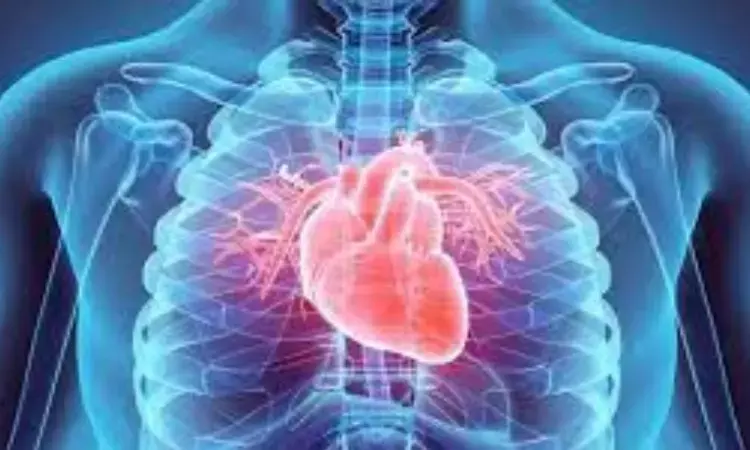- Home
- Medical news & Guidelines
- Anesthesiology
- Cardiology and CTVS
- Critical Care
- Dentistry
- Dermatology
- Diabetes and Endocrinology
- ENT
- Gastroenterology
- Medicine
- Nephrology
- Neurology
- Obstretics-Gynaecology
- Oncology
- Ophthalmology
- Orthopaedics
- Pediatrics-Neonatology
- Psychiatry
- Pulmonology
- Radiology
- Surgery
- Urology
- Laboratory Medicine
- Diet
- Nursing
- Paramedical
- Physiotherapy
- Health news
- Fact Check
- Bone Health Fact Check
- Brain Health Fact Check
- Cancer Related Fact Check
- Child Care Fact Check
- Dental and oral health fact check
- Diabetes and metabolic health fact check
- Diet and Nutrition Fact Check
- Eye and ENT Care Fact Check
- Fitness fact check
- Gut health fact check
- Heart health fact check
- Kidney health fact check
- Medical education fact check
- Men's health fact check
- Respiratory fact check
- Skin and hair care fact check
- Vaccine and Immunization fact check
- Women's health fact check
- AYUSH
- State News
- Andaman and Nicobar Islands
- Andhra Pradesh
- Arunachal Pradesh
- Assam
- Bihar
- Chandigarh
- Chattisgarh
- Dadra and Nagar Haveli
- Daman and Diu
- Delhi
- Goa
- Gujarat
- Haryana
- Himachal Pradesh
- Jammu & Kashmir
- Jharkhand
- Karnataka
- Kerala
- Ladakh
- Lakshadweep
- Madhya Pradesh
- Maharashtra
- Manipur
- Meghalaya
- Mizoram
- Nagaland
- Odisha
- Puducherry
- Punjab
- Rajasthan
- Sikkim
- Tamil Nadu
- Telangana
- Tripura
- Uttar Pradesh
- Uttrakhand
- West Bengal
- Medical Education
- Industry
Time-restricted eating may lower CVD risk for older breast cancer survivors

Older breast cancer survivors with cardiometabolic risk factors who restricted food intake to eight hours during the weekday, followed by 16 hours of fasting, lowered their risk of cardiovascular disease (CVD) after a few weeks, according to a new research letter publishing today in JACC: CardioOncology. The study is a part of the upcoming mini-focus issue, "Physical Activity and Lifestyle Interventions in Cancer."
The authors looked at 22 individuals with a body mass index who were classified as overweight or obese (>25kg/m2), had completed cardiotoxic treatment (anthracyclines, a commonly used chemotherapy drug) within the past one to six years, and were an average age of 66 years. For eight weeks participants were allowed to eat freely between 12-8 p.m. on weekdays and at any time on the weekends.
Outside of those hours, participants were asked to consume only water, black coffee or black tea. Using the Canadian Cardiovascular Society scoring system to calculate the 10-year Framingham Risk Score, the authors found that CVD risk decreased from 10.9% to 8.6% at the end of the trial period.
"This rigorously designed, well-executed single-arm feasibility study generates important hypotheses and questions about the role of time restricted eating relevant to cancer survivors," said Bonnie Ky, MD, MSCE, editor-in-chief of JACC: CardioOncology.
"For example, what is the basis of the inter-individual variation of the response to time restricted eating in the Framingham Risk Score, and will this help identify patients who are most likely to benefit from this strategy? How does diet quality affect these findings? We look forward to seeing research using practical lifestyle interventions continue to evolve and advance to improve the lives of our patients and survivors."
For more details, check out the link given below:
Dr Kamal Kant Kohli-MBBS, DTCD- a chest specialist with more than 30 years of practice and a flair for writing clinical articles, Dr Kamal Kant Kohli joined Medical Dialogues as a Chief Editor of Medical News. Besides writing articles, as an editor, he proofreads and verifies all the medical content published on Medical Dialogues including those coming from journals, studies,medical conferences,guidelines etc. Email: drkohli@medicaldialogues.in. Contact no. 011-43720751


